Services
Make an appointmentNEPHROLOGY SERVICES
Patients with all types of kidney (renal) and hypertension related disorders receive advanced comprehensive and compassionate care from our specialists at Regional Nephrology Associates.
Our physicians are experts in diagnosing and treating kidney disease and hypertension. We also provide hemodialysis and peritoneal dialysis. When necessary, our physicians refer patients for kidney transplantation.
Our specialists provide consultations and treatment for:
- Renal, electrolyte and acid-based disorders
- Dialysis
- All types of kidney disease
- Hypertension (with or without renal disease)
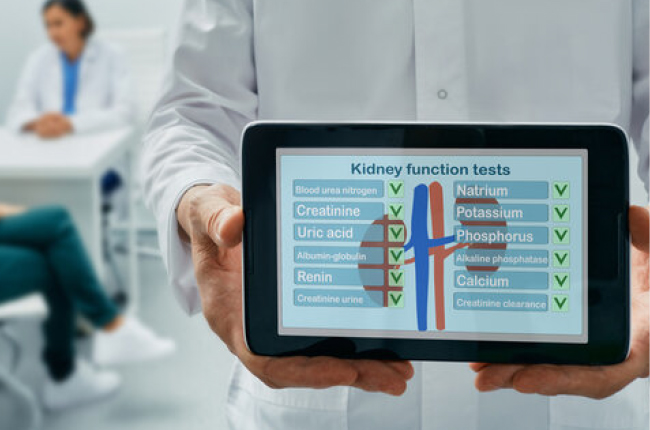
HYPERTENSION (ELEVATED BLOOD PRESSURE)
Blood Pressure is the force exerted by the circulating blood on the walls of the arteries and is established by two measurements:
- Systolic blood pressure (when the heart beats and contracts)
- Diastolic blood pressure (when the heart relaxes between heart beats)
Normal blood pressure =
Systolic < 120 mmHg and Diastolic < 80mmHg
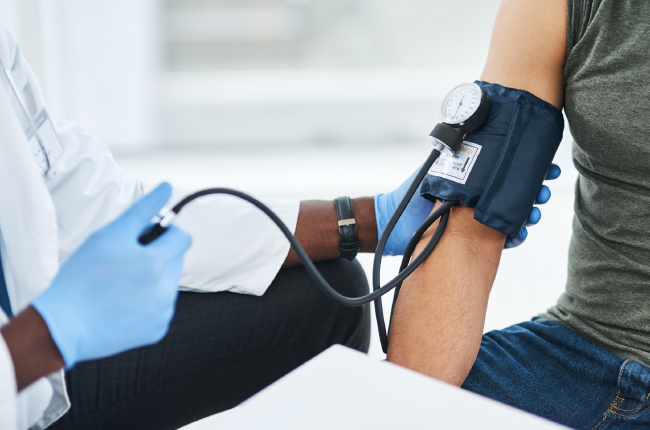
Hypertension is a chronic (long term) condition described as elevated blood pressure with systolic blood pressure greater than 120 mmHg or diastolic pressure greater than 80 mmHg. Left untreated, hypertension can lead to several complications such as kidney damage, cardiovascular disease, and stroke. Your kidney specialist provides expert, individualized care to treat hypertension effectively.
Causes of Hypertension (Elevated Blood Pressure)

Hypertension is divided into Primary hypertension and Secondary hypertension.
- Primary hypertension can develop gradually over the years secondary to stiffening of blood vessels and several risk factors associated with it such as advancing age, obesity, family history, excessive sodium intake, and physical inactivity.
- Secondary Hypertension can result from several underlying conditions such as adrenal gland benign tumors, oral contraceptives, NSAIDS, antidepressants, corticosteroids, mineralocorticoids, decongestants, narrowing of the kidney blood vessels, weight loss medications, etc.
Symptoms of Hypertension
Hypertension generally presents with no symptoms but if left untreated can lead to symptoms such as nose bleeds, headaches, shortness of breath, cardiovascular disease, stroke, and kidney damage.
Treatment of Hypertension
Special treatment of hypertension is focused on lifestyle changes, dietary modifications, stress reduction and routine exercise regimen. It is imperative to have your blood pressure monitored periodically and follow with your kidney specialist. At Regional Nephrology Associates, we provide focused care and can assist with the care plan for patients based on their individual needs.

CHRONIC KIDNEY DISEASE (CKD)
Chronic kidney disease is a condition involving reduced kidney function or presence of kidney damage for three or more months which can be secondary to several underlying factors leading to reduced elimination of waste and toxins from the blood.
Causes of Chronic Kidney Disease (CKD)
There are several factors leading to chronic kidney disease but the two most common are high blood pressure and diabetes mellitus. Other factors can be autoimmune disease, urinary tract obstruction, drug toxicity, inherited disorders, and recurrent urinary tract infections.

Classification of Chronic Kidney Disease
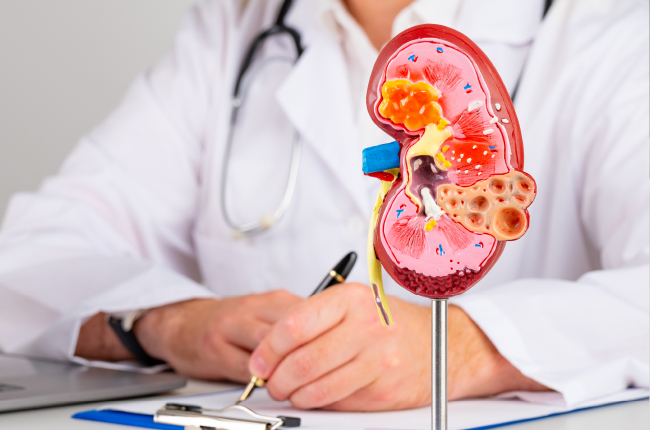
Chronic kidney disease is classified based on GFR (Glomerular Filtration Rate) and presence of protein in the urine which guides management and risk stratification of the progression of CKD.
Symptoms of Chronic Kidney Disease
Chronic kidney disease generally does not have symptoms in the early stages. Symptoms arise later as chronic kidney disease progresses leading to building of more toxins in the blood and complications such as anemia, elevated phosphorus levels, fatigue, weaker bones, heart disease (cardiovascular disease) making it significantly important to follow closely with your kidney specialist.
DIALYSIS
Dialysis is a treatment for people whose kidneys are failing. When you have kidney failure, your kidneys don't filter blood the way they should. As a result, wastes and toxins build up in your bloodstream. Dialysis does the work of your kidneys, removing waste products and excess fluid from the blood.
People who have kidney failure, or end-stage renal disease (ESRD), will eventually need some form of dialysis. Kidney failure can be a long-term condition, or it can come on suddenly (acute) after a severe illness or injury.
Acute kidney failure has the potential of the kidney recovery, depending on the cause. There are five stages of kidney disease as previously discussed. In stage 5 kidney disease, healthcare providers consider you to be in end-stage renal disease (ESRD) or kidney failure.At this point, kidneys are carrying out around 10% to 15% of their normal function. People will eventually need some form of dialysis or a kidney transplant, as kidney function worsens, to stay alive.
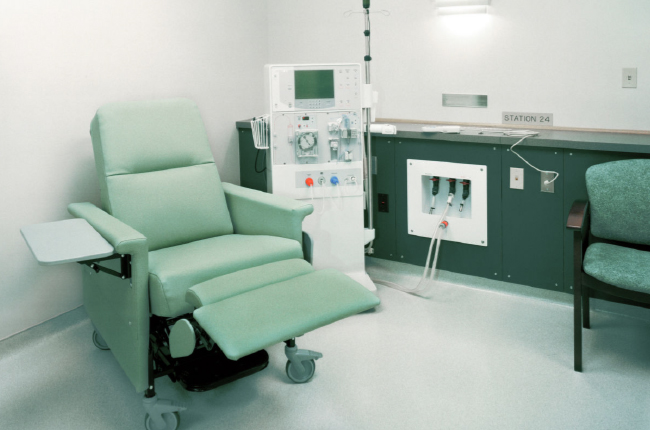

Types of Dialysis
There are two ways to get dialysis: hemodialysis and peritoneal dialysis.
Hemodialysis
Hemodialysis is a way to remove waste products from the blood when the kidneys can no longer do their job adequately. In hemodialysis, a machine filters wastes, salts, and fluid from the blood. Currently, hemodialysis is the most common way to treat kidney failure.
In hemodialysis, blood is removed from the body and filtered through a filter called a dialyzer, or artificial kidney, and the filtered blood is returned to the body. To perform hemodialysis, there needs to be an access point in the patient’s body to get the blood from the body to the dialyzer and back into the body. There are three types of access points for hemodialysis: arteriovenous (AV) fistula, AV graft, and central venous catheter (HD catheter). The fistula is the most common access used in adult patients.
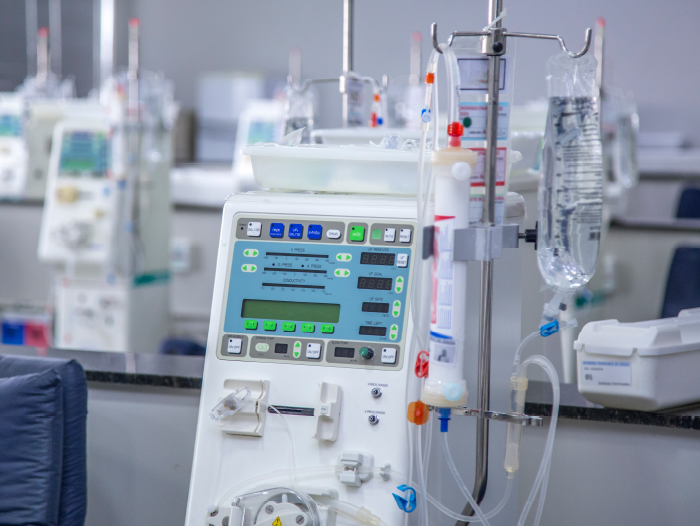
When a patient goes to receive hemodialysis, a nurse checks vital signs and gets the patient’s weight. The patient’s weight will indicate how much excess fluid the patient needs to have removed during the treatment. The patient is then connected to the machine.
Blood never actually goes through the dialysis machine. The machine is like a big computer and a pump. It keeps track of blood flow, blood pressure, the amount of fluid removed, and other vital information. It also mixes the dialysate, or dialysis solution, which is the fluid bath that goes into the dialyzer. This fluid helps pull toxins from the blood. The dialysis machine has a blood pump that keeps the blood flowing by creating a pumping action on the blood tubes that carry the blood from the body to the dialyzer and back to the body.
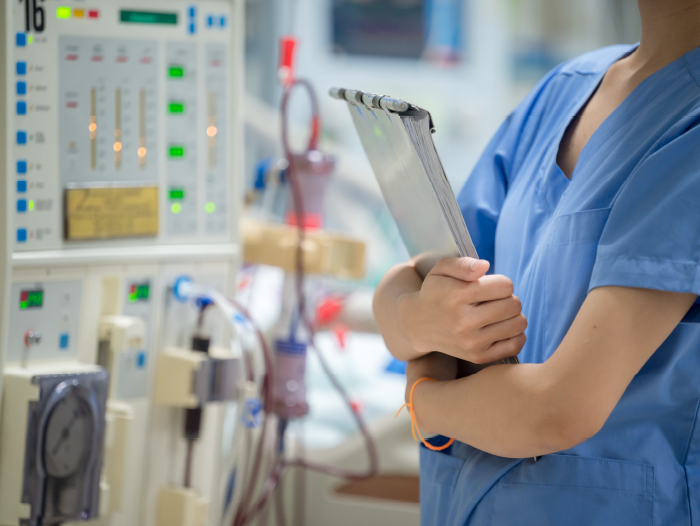
Peritoneal Dialysis
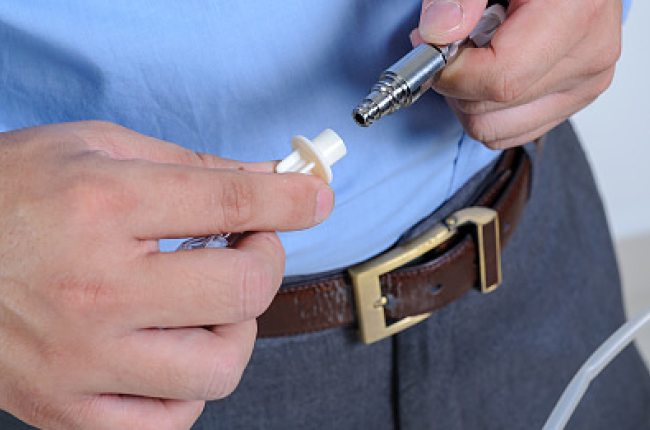
Peritoneal dialysis is a way to remove waste products from the blood when the kidneys can no longer do their job adequately. During peritoneal dialysis, blood vessels in the stomach’s abdominal lining, the peritoneum, filter much like the kidneys with the help of a dialysate fluid that goes in and out in cycles through a catheter in the abdomen.
PD uses the thin lining of the abdomen called the peritoneum as a filter. During treatments, a cleansing fluid called dialysate is cycled into the patient’s abdomen through a small, flexible tube called a PD catheter.
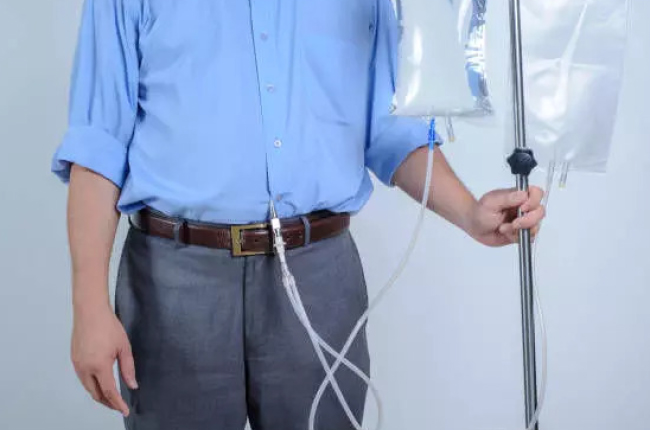
At Regional Nephrology Associates, we work with each patient to determine the best treatment. We provide ongoing chronic kidney disease education to prepare our patients for transplant or optimal start dialysis. Many patients choose home therapy as it can be the best option to maintain an independent lifestyle. We also have a full-time clinical renal care coordinator dedicated to transitioning patients onto dialysis.
KIDNEY TRANSPLANT
In the event of severe kidney function decline, we seek referral to a reputed transplant center. Regional Nephrology works closely with all major transplant centers in the greater New York, New Jersey, and Pennsylvania region. Kidney transplants can be from either a living donor (related or unrelated) or deceased donor. The management of kidney transplant is complex and requires a detailed understanding of antirejection medications which prevent the body from rejecting the transplant and of potential complications which can limit the success of the transplant.
At Regional Nephrology Associates, we provide you with highly trained medical professionals with a deep understanding of transplant science.
The goal of our practice is to recognize and refer for a kidney transplant as soon as possible. The goal always is to choose medical options which promote patient independence and quality of life. If you are interested in donating a kidney, please feel free to contact the office to discuss the donation process and benefits!
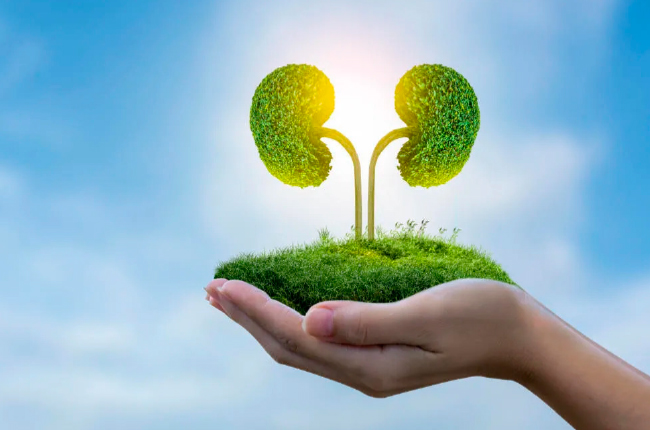

ATLANTIC COUNTY VASCULAR INSTITUTE (ACVI)
ACVI offers cutting edge technology and procedural interventions for our patients with special care provided for our patients with limited kidney function.
The procedures offered include:
- 1. Dialysis vascular access procedures
- 2. PICC (percutaneously inserted central catheter) and PORT placement
- 3. Tunneled dialysis catheter placement and removals
- 4. Peritoneal dialysis catheter placement and repair
- 5. Ankle/brachial index
- 6. Uterine artery/gonadal artery embolization
- 7. Nephrostomy tube placement and exchange
The procedures performed at ACVI are completed by highly trained interventional radiologists and nephrologists. Procedures can be completed with alternative contrast mediums to limit strain on the kidneys. All procedures are performed in the outpatient setting and patients go home after the procedure completion.
IMPORTANT UPDATE: CORONAVIRUS (COVID-19)
The top priority of our practice is the health and safety of our patients, providers, staff and community.
We are now conveniently offering telehealth services as an option for your appointment.
Please click here to learn more and get the latest COVID-19 updates.
